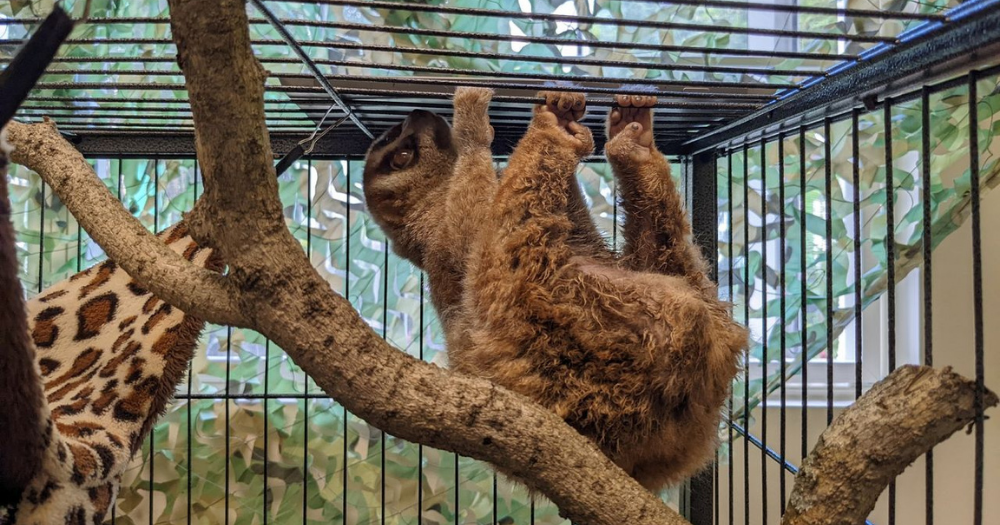Follow us on Telegram for the latest updates: https://t.me/mothershipsg
Amendments proposed for the existing Endangered Species (Import and Export) Act (ESA) to impose stiffer penalties and reduce the trading of illegal wildlife in Singapore were accepted on Jul. 4.
The Bill was read for the second time in Parliament on Jul. 4 by Senior Minister of State for National Development Tan Kiat How.
Tan shared that the ESA gives Singapore the power to take action against illegal traders, such as by establishing a domestic ban on the trade of ivory here in Sep. 2021.
What is ESA?
The ESA supports the local implementation and enforcement of Convention on International Trade in Endangered Species of Wild Fauna and Flora (CITES) regulations, which is an international agreement aiming to regulate the trade of wild animals and plants.
CITES protects over 38,700 species, which are sorted into three appendices depending on how threatened they are.
After consulting a wide range of stakeholders such as shipping companies, industry associations, traders and non-profit organisations, as well as holding a public consultation in end-2021, four key areas of the ESA were amended.
These amendments will make the act more effective and more closely aligned with relevant domestic and international laws on endangered species, Tan shared.Greater clarity on definition of species in transit
The first area of amendments strengthens Singapore's regulatory regime for trading CITES species.
One of the amendments will provide greater clarity for stakeholders on the requirements for the transit of CITES species through Singapore and the documents required for this trade, Tan said.
The definition of a species in "transit" in the ESA previously referred to a species that has been brought in, solely for the purpose of being taken out of Singapore.
Under the updated ESA, traders bringing a CITES species in transit will now have to provide the National Parks Board (NParks) with a document specifying a port, airport or any other place outside Singapore as the destination for the CITES species.
Ensuring traders provide valid permits
The second area of amendment aligns the ESA more closely with CITES resolutions.
CITES resolutions provide guidance and recommendations on how CITES parties should interpret and implement CITES rules and regulations on wildlife trade.
One of the amendments will ensure that hybrid animals of CITES species will be considered as though they are full species. The ESA regulations will thus apply to these hybrid species as well.
One example is the Bengal cat, a cross between the CITES-listed Asian leopard cat and the domestic cat.
The updated ESA now explicitly requires traders to produce permits for the trade of Bengal cats.
Additionally, the amended ESA clauses make clear that permits or other documents issued retrospectively after the date of export or re-export of the CITES species, that have been altered, are not accepted for the trade of CITES species in Singapore.
Retrospectively-issued documents will only be accepted if the documents are for the trade of Appendix II and III species, and if the circumstances that led to the retrospective issuance of the documents were not caused or contributed to by the trader.
This amendment, Tan said, will strengthen enforcement against those who trade CITES species without valid permits or documents.
Stricter penalties
The third key area of amendment is to introduce stiffer penalties for endangered wildlife trade offences.
The penalties will be enhanced to "keep pace with the times", Tan said, considering how the value of wildlife has risen over the years, and to further deter against illegal wildlife trade.
The maximum fine for an individual of the illegal trade of Appendix I species, which are threatened with extinction, will be raised from S$50,000 to S$100,000 per specimen, and the maximum jail term will be raised from two years to six years.
The maximum jail term for the illegal trade of Appendix II and III species will also be increased from two to four years, while the maximum fine will be maintained at S$50,000.
Additionally, domestic trade within Singapore of CITES species and their parts, such as elephant ivory, will see similar higher penalties.
Corporate offenders, including companies and individuals acting under the direction of companies, who illegally trade CITES species will also face stiffer penalties.
Strengthen NParks' enforcement powers
Lastly, the amendments were also made to strengthen NParks' enforcement powers to facilitate investigations into illegal wildlife trade offences.
NParks can now seize items or cargo used to conceal illegal wildlife, as well as the vehicles used to transport them.
Tan shared that this will deter smugglers who stand to lose their vehicles and any additional cargo used to commit the offence.
NParks officers can also be accompanied by auxiliary police officers during their inspections.
Additionally, the amended ESA will introduce new safeguards to protect the identity of informants of illegal wildlife trade.
This will hopefully encourage more people to come forward and provide information about such illicit activities, as authorities rely on tip-offs to catch smugglers.
More details on the amendments can be found on NParks' website here.
Related stories
Top photo from NParks / FB
If you like what you read, follow us on Facebook, Instagram, Twitter and Telegram to get the latest updates.
